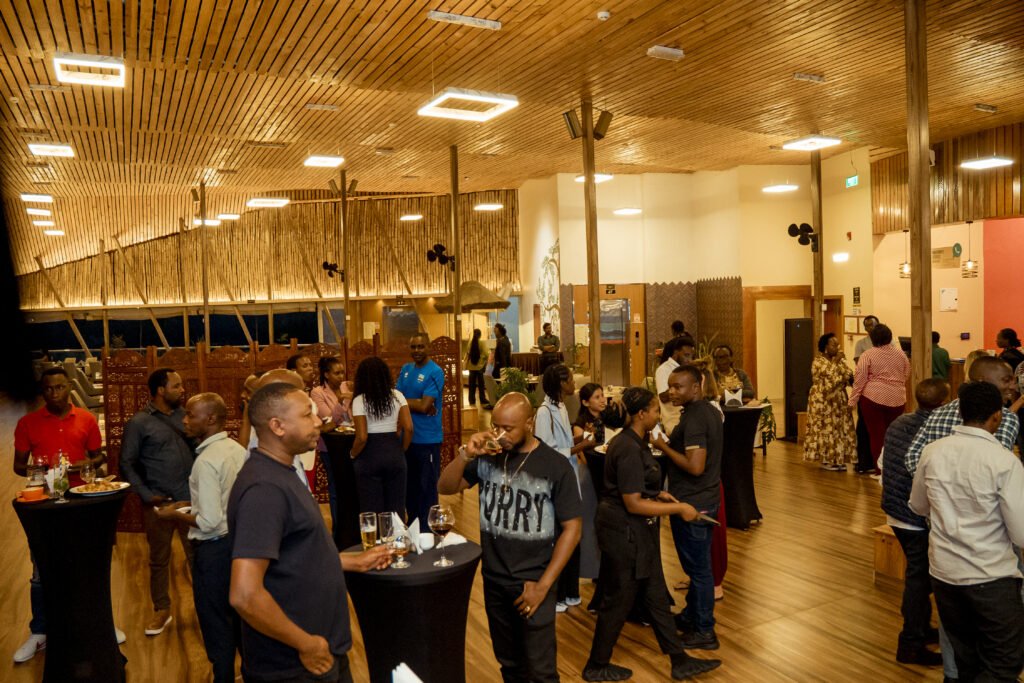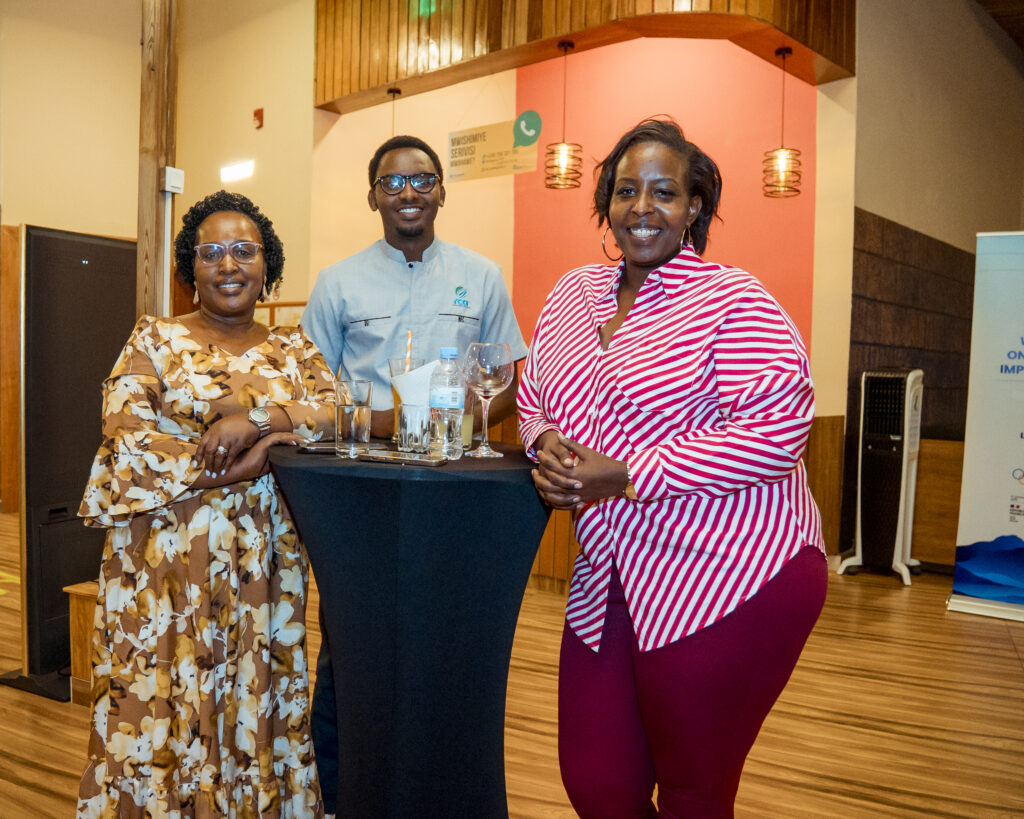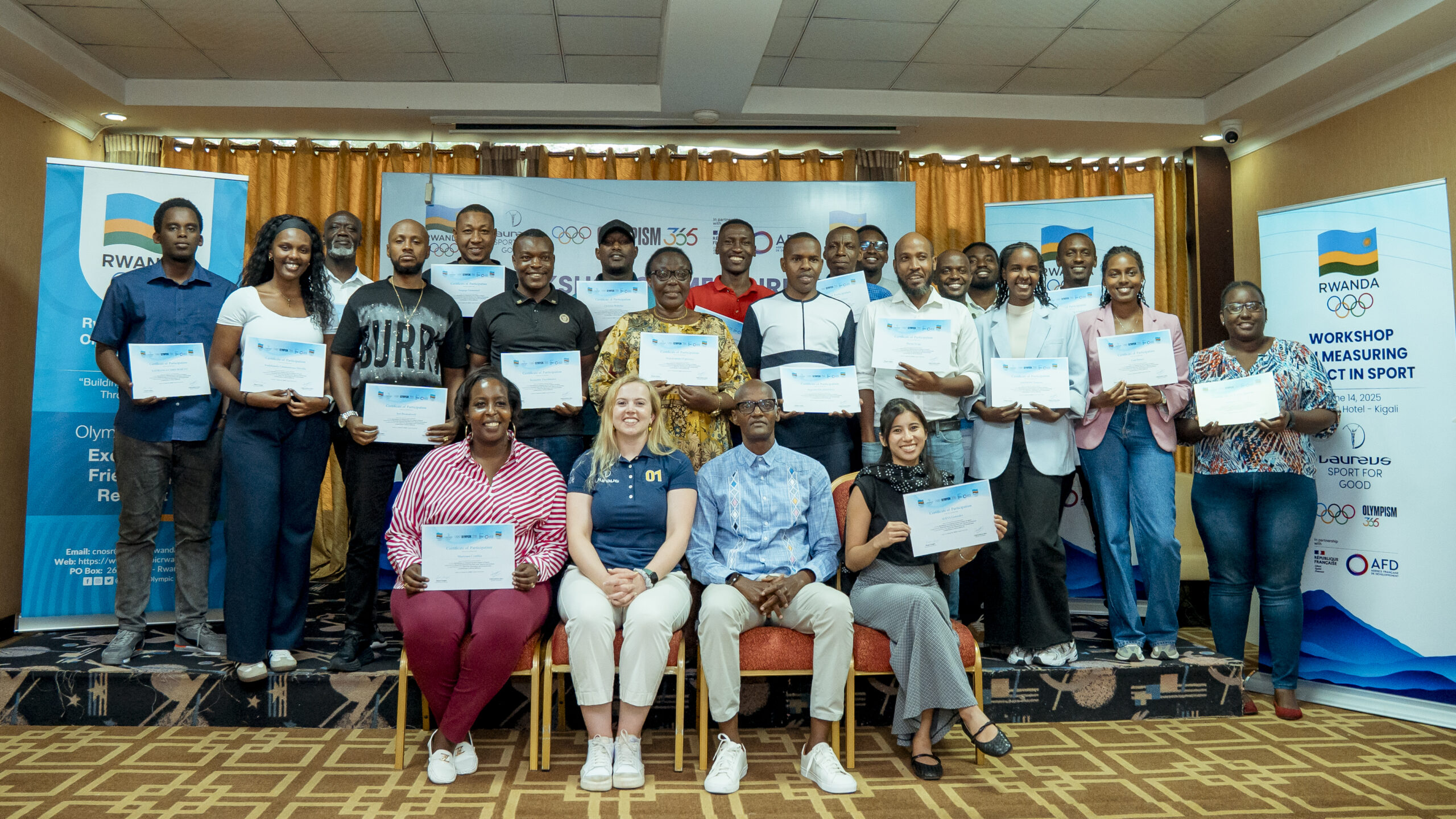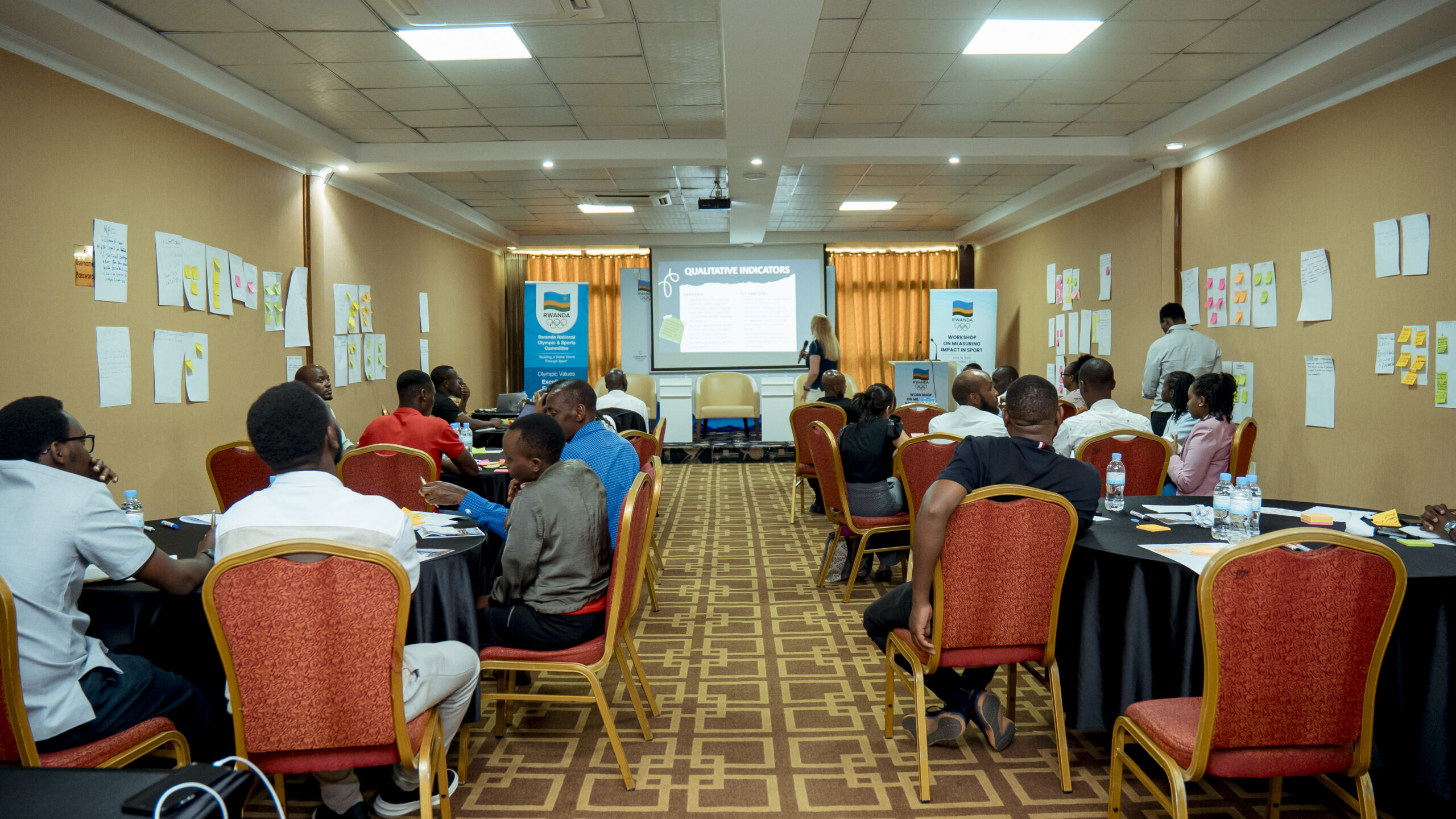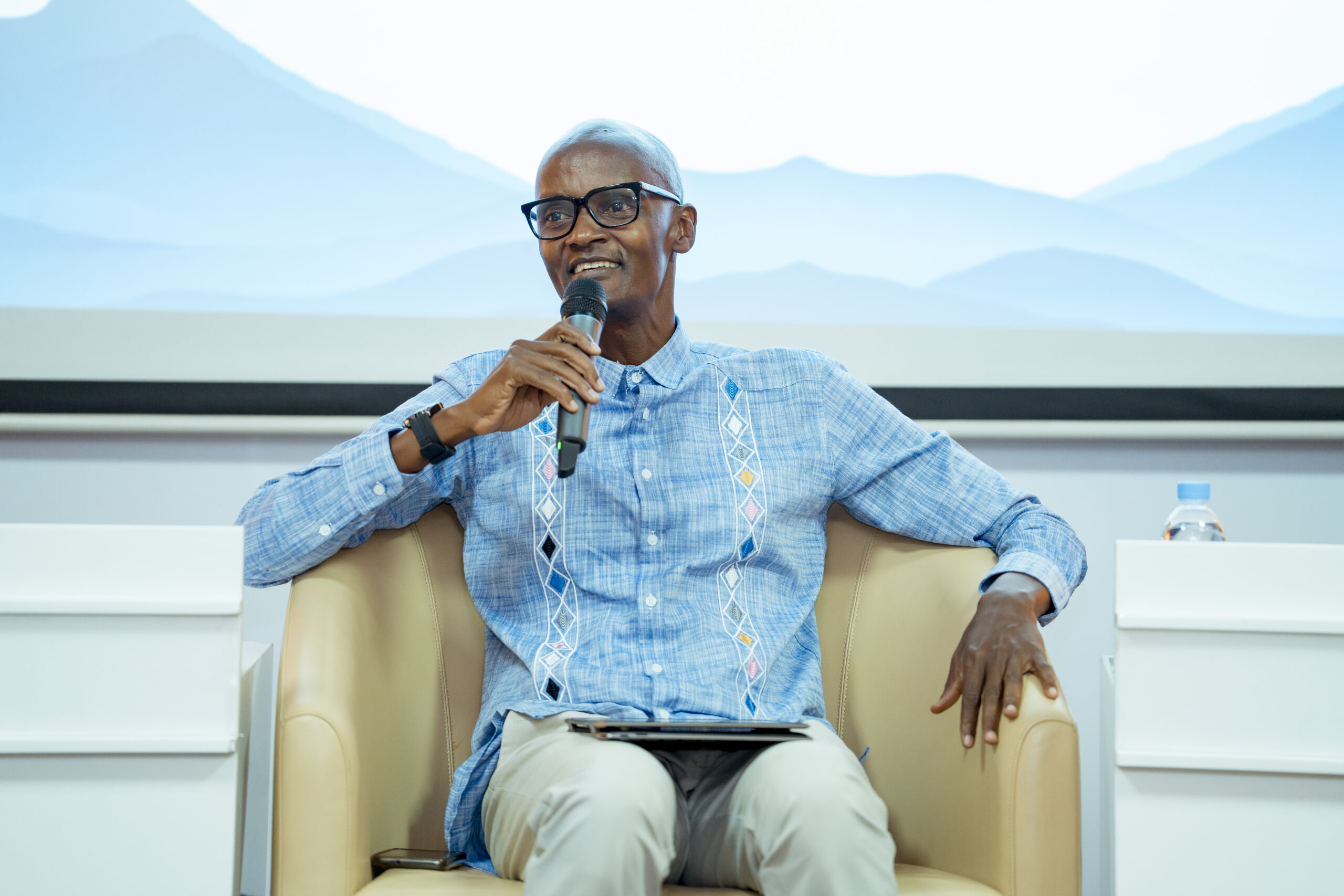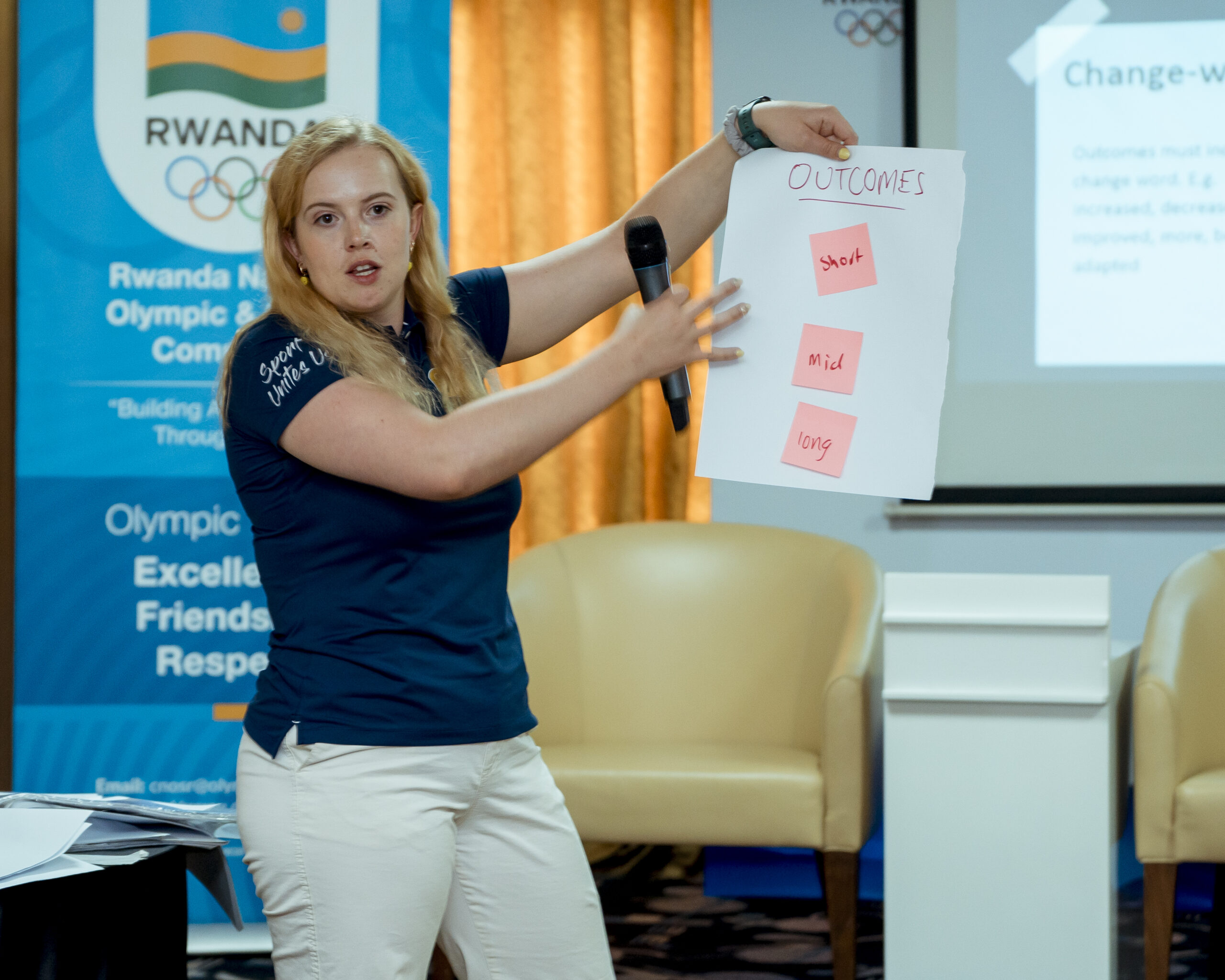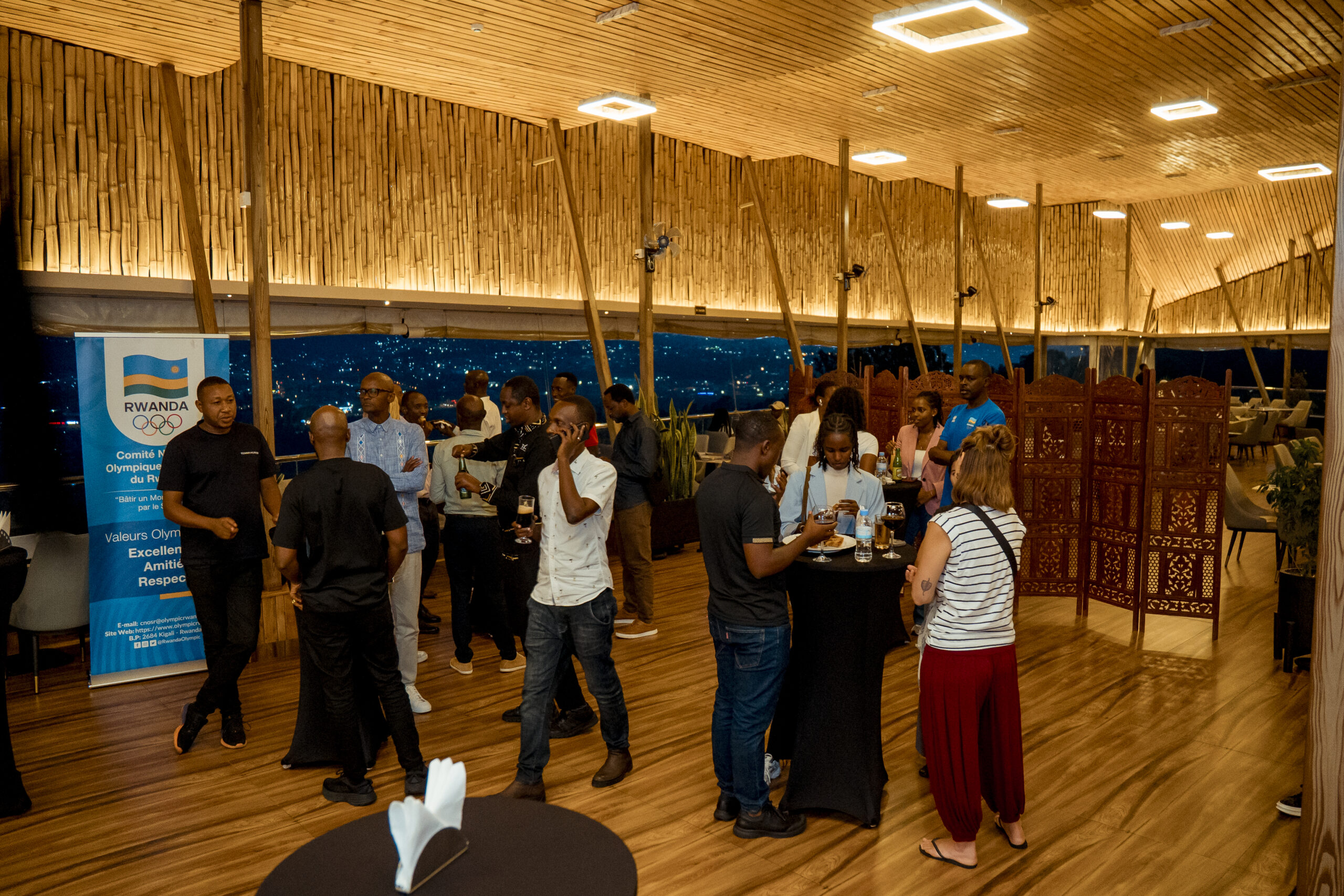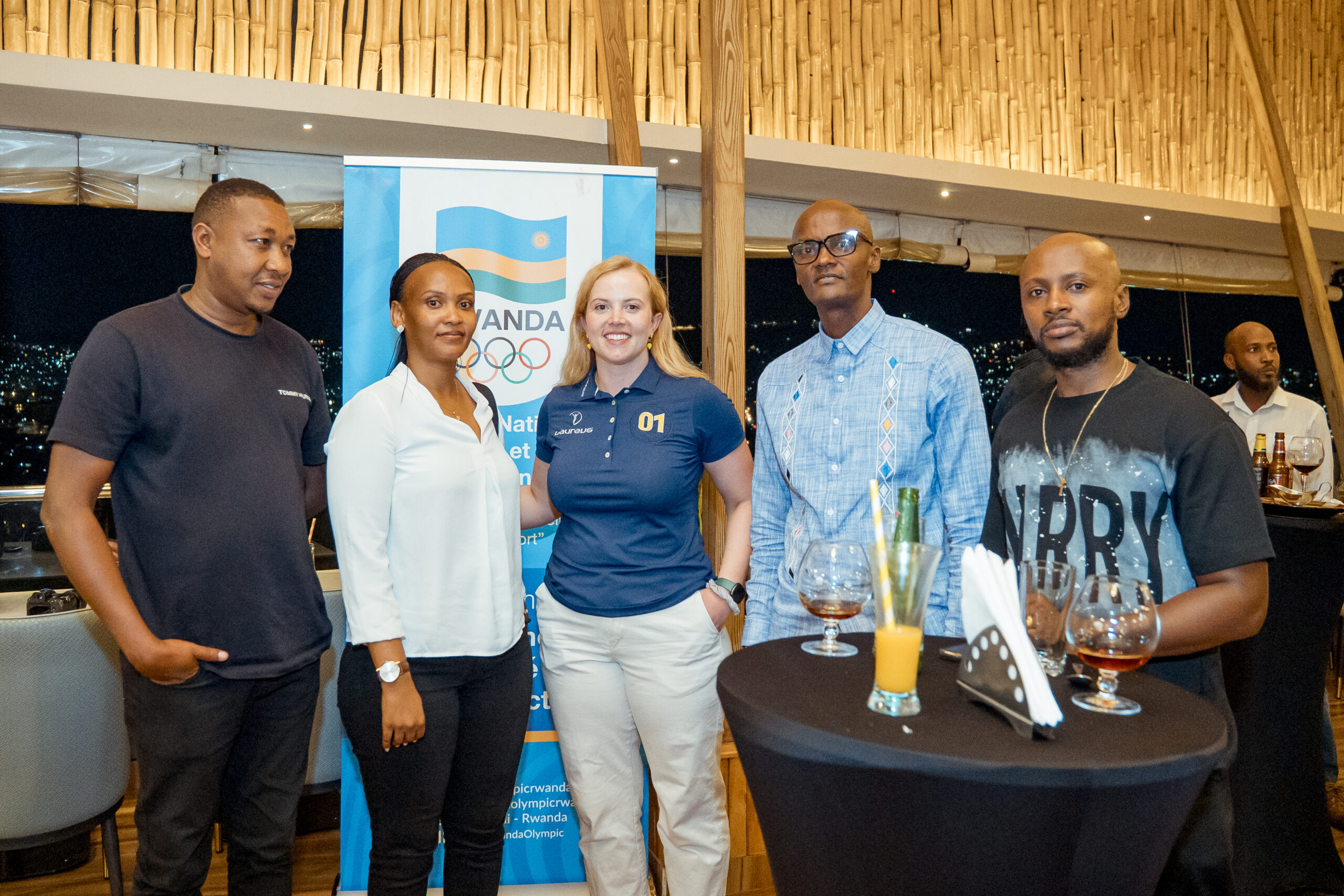Aimed at helping sport organizations in Rwanda use data to drive real, measurable change in communities, the Rwanda National Olympic & Sports Committee (RNOSC) hosted a 1-day workshop on measuring the impact of sport for development programmes in Rwanda. This workshop was powered by the Laureus Sport For Good foundation in partnership with the International Olympic Committee (IOC) through the Olympism 365 programme, and Agence Française de Développement (AFD) through its Sport for Education and Sustainable Livelihoods in Africa (SESLA) initiative. The workshop saw the attendance of 30 individuals from 14 organizations within which are National Sports Federations and 4 notable organizations driving impact in Rwanda; Friends of Health Initiative, MindLeaps, Plan International Rwanda, and Thousand Hills Rugby.
The workshop was underway at Lemigo Hotel Kigali
As the event commenced, the secretary general of RNOSC, KAJANGWE Joseph officially opened the workshop with remarks reminding the participants of the occasion’s meaning. During his remarks, the secretary general noted:
“At the Rwanda National Olympic and Sports Committee, our mission is to develop athletes and their entourage, not only for excellence in sport, but for meaningful contribution to a better society,” he said. “When we speak of an athlete’s entourage, we refer to their families, friends, and the broader community; those who shape the environment around them. This is why we are deeply committed to the Olympism365 vision.”
The secretary general of RNOSC, KAJANGWE Joseph delivers his opening remarks
The workshop covered crucial topics around monitoring & evaluation, highlighting impact as the main goal of applying these skills within the attending organizations’ programmes. The topics covered were:
- The MEAL framework (Monitoring, Evaluation, Accountability, and Learning), introduced as a foundation for ensuring transparency, learning, and improvement across programme activities.
- Crafting ultimate goals aligned with social impact, using the Laureus Project Framework.
- Identifying target populations to clearly define who benefits from each programme.
- Developing measurable outcomes, with a checklist that emphasizes use of change-words (e.g., increased, improved), past-tense phrasing, inclusion of beneficiaries, and defined timelines.
- Distinguishing outputs (key deliverables) from outcomes and mapping out activities that contribute to achieving those outputs.
- Designing SMART indicators (Specific, Measurable, Achievable, Relevant, and Time-bound) to accurately track progress and impact.
- Establishing robust data collection methodologies, ensuring that data gathered is objective, credible, and capable of influencing real decisions.
Workshop Facilitator, Ms. Fiona Cooper assists the participants
The facilitator, Ms. Fiona Cooper, Senior Knowledge Manager at Laureus Sport for Good, guided participants through each step using interactive discussions and practical exercises tailored to their organizational contexts. She emphasized that strong monitoring and evaluation is not just about compliance or reporting, but about driving meaningful, measurable change in communities through sport.
In the final sessions, participants were introduced to the broader frameworks they can align with, including the SESLA initiative Framework, the Olympism365 Theory of Change, and the Laureus Global Objective And Learning Framework. This provided a reference point for organizations to situate their own work within global standards of sport for development impact.
The workshop concluded with a message of gratitude from RNOSC Secretary General, Mr. Joseph Kajangwe, who acknowledged the contribution of Laureus, IOC, and AFD in supporting the SESLA initiative and making the workshop possible. Participants were awarded certificates in recognition of their engagement and the knowledge gained.
Group Photo of participants with their certificates
The day ended with a networking cocktail at The Hut Kigali, giving attendees an opportunity to connect, share ideas, and foster collaborations that will support the implementation of strong, data-driven programmes in the months and years to come.
